Ecological Forestry in the Context of Climate Change Webinar Series
This webinar series tells a story about how small- and large-scale forest disturbances, such as fire, wind, ice storms, hurricanes, sea-level rise, flooding, introduced and endemic forest pests, and others, impact forest ecosystems. The series also examines ecological silviculture and climate adaptation approaches to help inform forest and wildlife management.
Series topics are applicable to biologists, foresters, land managers and planners, and other natural resource practitioners working in Federal, State, Tribal, and local government agencies, and non-government and private organizations, with an interest in the intersection of climate change adaptation, forest ecology, and wildlife habitat management.
Each presentation topic is intended to build upon the prior webinar in order to tell a cohesive story about forest disturbance and climate change impacts on forest ecosystems and provide silvicultural and adaptation options for natural resource management.
This webinar series is now complete.Credits:
This webinar series was sponsored by the U.S. Fish and Wildlife Service (FWS) - Forest Ecology Working Group (FEWG), Science Applications and Migratory Birds Programs, and the National Conservation Training Center (NCTC) together with the USDA Northern Forests Climate Hub and the Northern Institute of Applied Climate Science (NIACS), a collaborative, multi-institutional partnership led by the Forest Service.
-

Ecological Silviculture in the Context of Climate Change
Presented on September 19, 2023.
Anthony D'Amato with the University of Vermont gives an overview on ecological silviculture and associated principles and discussed natural disturbance archetypes that guide ecological silviculture systems and the linkages between ecological silviculture outcomes and forest adaptation.
-

National Trends in Forest Disturbance
Presented on October 31, 2023.
Jennifer Costanza with the USDA Forest Service presents on the impacts of disturbance regimes on forests and recent and projected future trends in disturbances, forest composition, structure, and health. Jennifer has been involved in the Forest Service 2020 Resources Planning Act Assessment and discusses this effort.
-

Synergistic Effects of Multiple Stressors on Forest Resistance, Resilience, and Response
Presented on November 21, 2023.
Cristina Eisenberg with Oregon State University discusses the impacts and effects on multiple stressors on forest systems and adaptive strategies for managing forests with multiple stressors with an emphasis on incorporating Indigenous Knowledge and shares examples of collaborative work with Tribes.
-

Forest Disturbance and its Relationship to Wildlife Habitat
Presented on December 19, 2023.
Brenda McComb (emeritus) and Andrew Merschel with Oregon State University discuss the fundamental relationship of wildlife to forest structure and composition, forest disturbance as the creator of habitat elements, ecological forestry as necessary but not sufficient to provide habitat, and the climate drivers of habitat function: phenology and microclimatic refugia.
-

Ecological Silviculture for Restoration and Adaptation in Conifer Ecosystems of the Interior West
Presented on January 16, 2024.
Andrew Larson with the University of Montana discusses ecological silviculture for frequent-fire ponderosa pine and dry mixed-conifer ecosystems, their disturbance regimes, and forest dynamics. This presentation touches on uncharacteristic and post-fire forest landscape management and how to respond to change in rapidly evolving ecosystems with ecologically based treatments.
-
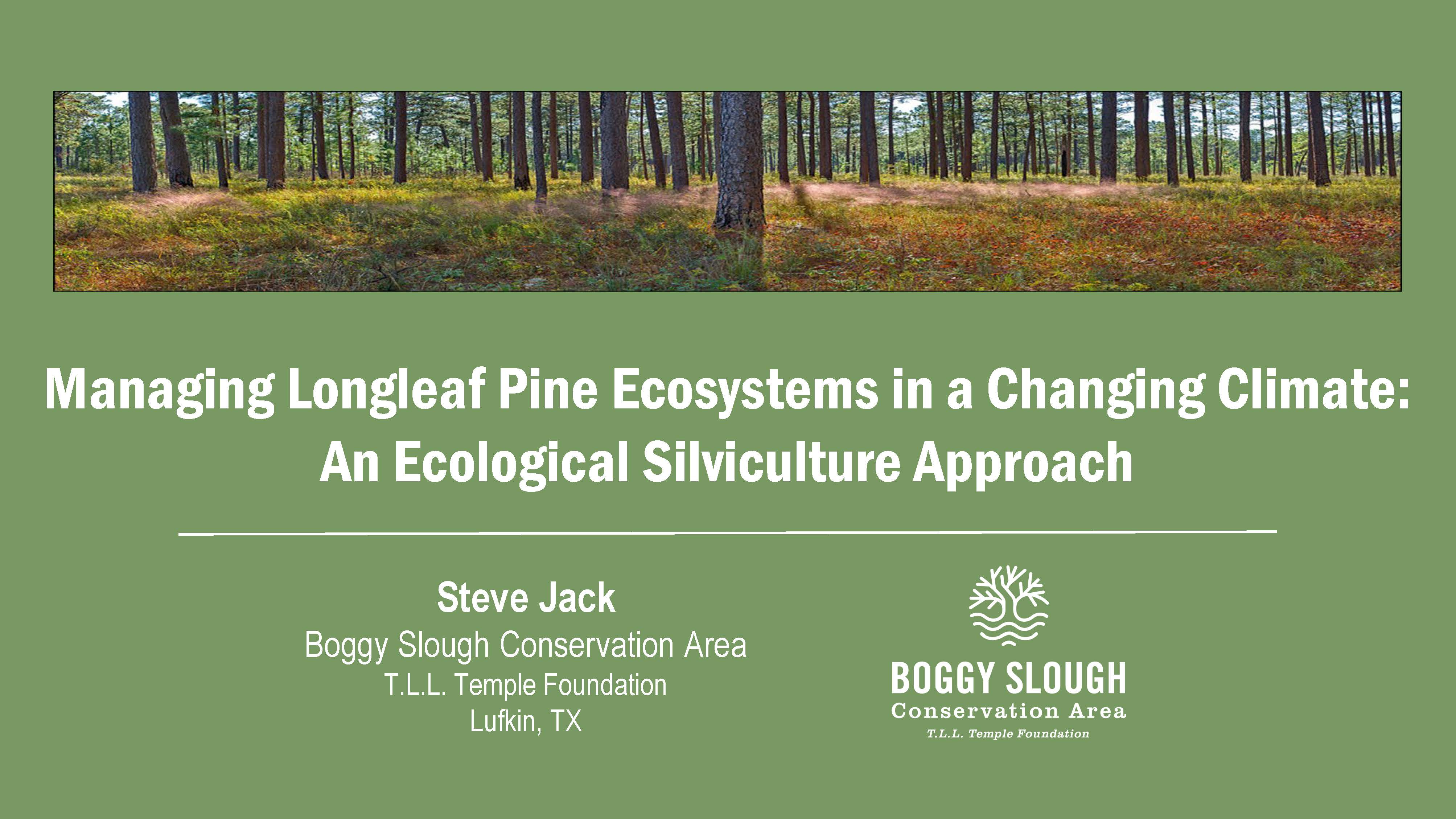
Managing Longleaf Pine Ecosystems in a Changing Climate: An Ecological Silviculture Approach
Presented on February 20, 2024.
Steve Jack with the T.L.L. Temple Foundation discusses adapting longleaf pine systems to change, restoring forest composition and structure, maintaining fire regimes in a “fire forest”, and synergies between hurricanes and fire regimes.
-
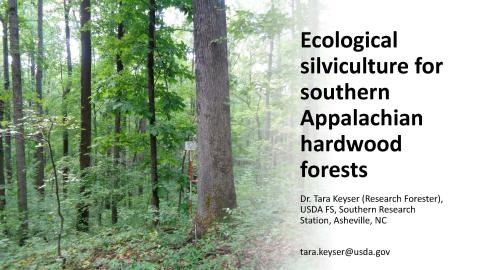
Ecological Silviculture for Southern Appalachian Hardwood Forests
Presented on April 30, 2024 (rescheduled from March due to technical difficulties).
Tara Keyser with the USDA Forest Service discusses how the Appalachian hardwood forests are changing. This presentation tells the story of wind, ice, and fire in the Appalachian hardwood forests, the interactions between disturbances and invasive plants and animals, and how to manage for change in these forest system.
-
Using Ecological Silviculture for Creating Wildlife Habitat in Degraded Northern Hardwood and Mixed Acadian Ecosystems
This webinar was canceled.
Tom LaPointe with the U.S. Fish and Wildlife Service will focus on building resilience in degraded forest ecosystems of New England, including creating wildlife habitat on Refuges in northern hardwood and Acadian mixed-wood forests and the ecological silviculture interactions with changing climate and invasive species.
-
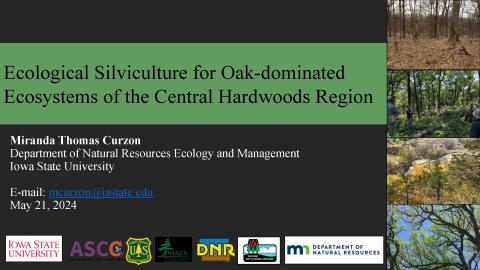
Ecological Silviculture for Oak-Dominated Ecosystems of the Central Hardwood Region
Presented on May 21, 2024.
Miranda Curzon with Iowa State University discusses drivers of change, including wind, floods, fire, pests, and invasive species, on Central Hardwood and Oak forest types and gives site-specific examples from the The Adaptive Silviculture for Climate Change (ASCC) Network.
-
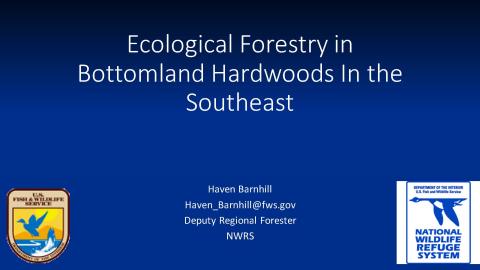
Ecological Silviculture for Southern Bottomland Hardwood Ecosystems
Presented on June 18, 2024.
Haven Barnhill with the U.S. Fish and Wildlife Service discusses the loss of ash species in bottomland hardwood forests and the increasing frequency and intensity of winds, floods, and the interactions between the two.The presentation touches on how to manage for resiliency given more intense hurricane and flood events.
-
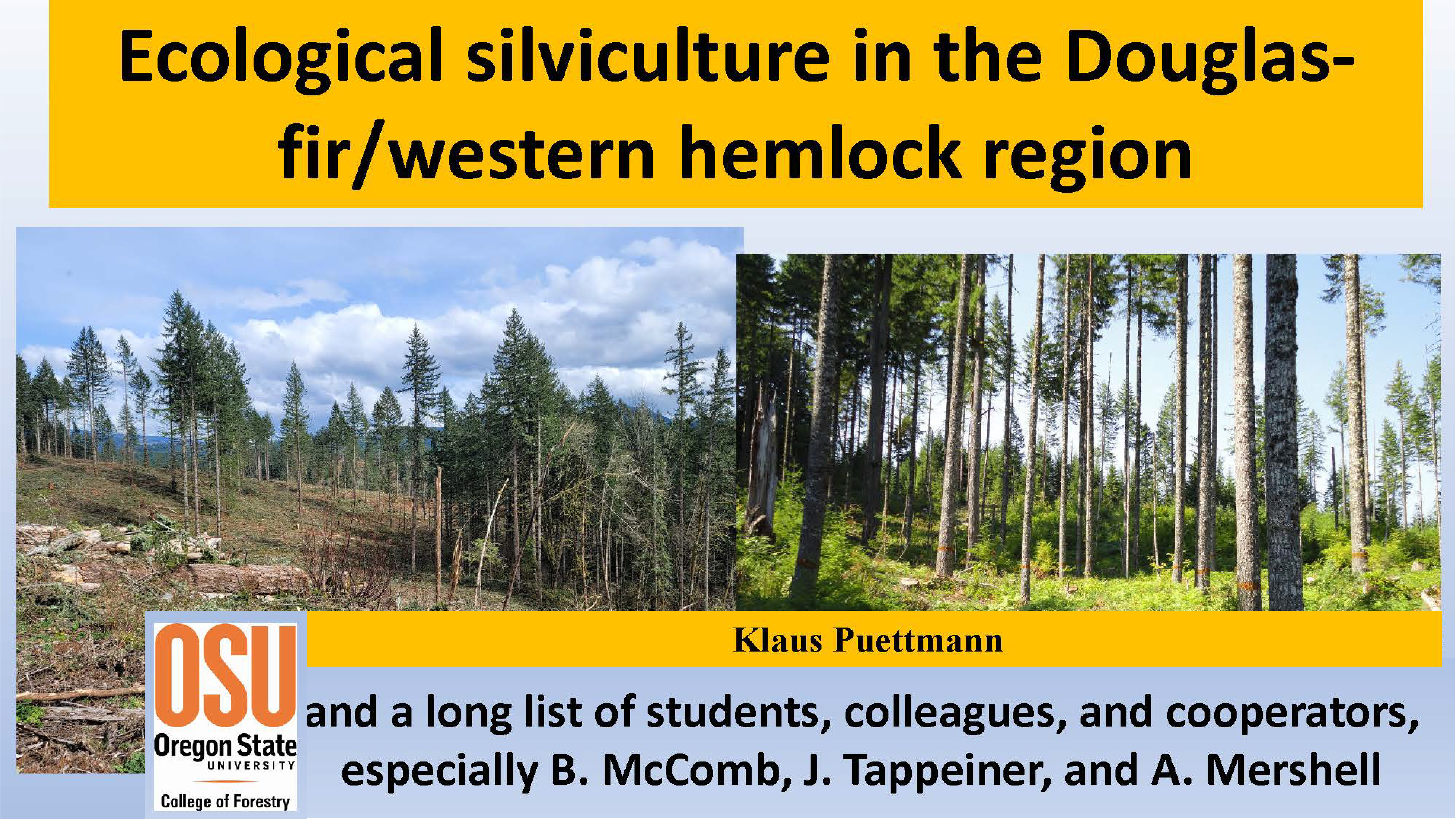
Ecological Silviculture in the Douglas-fir/Western Hemlock Region
Presented on July 23, 2024.
Klaus Puettman with Oregon State University discusses the roles of wind and fire in western forests, projected changes in climate and disturbance frequency and intensity, and managing for complex systems and old-growth forests.
-
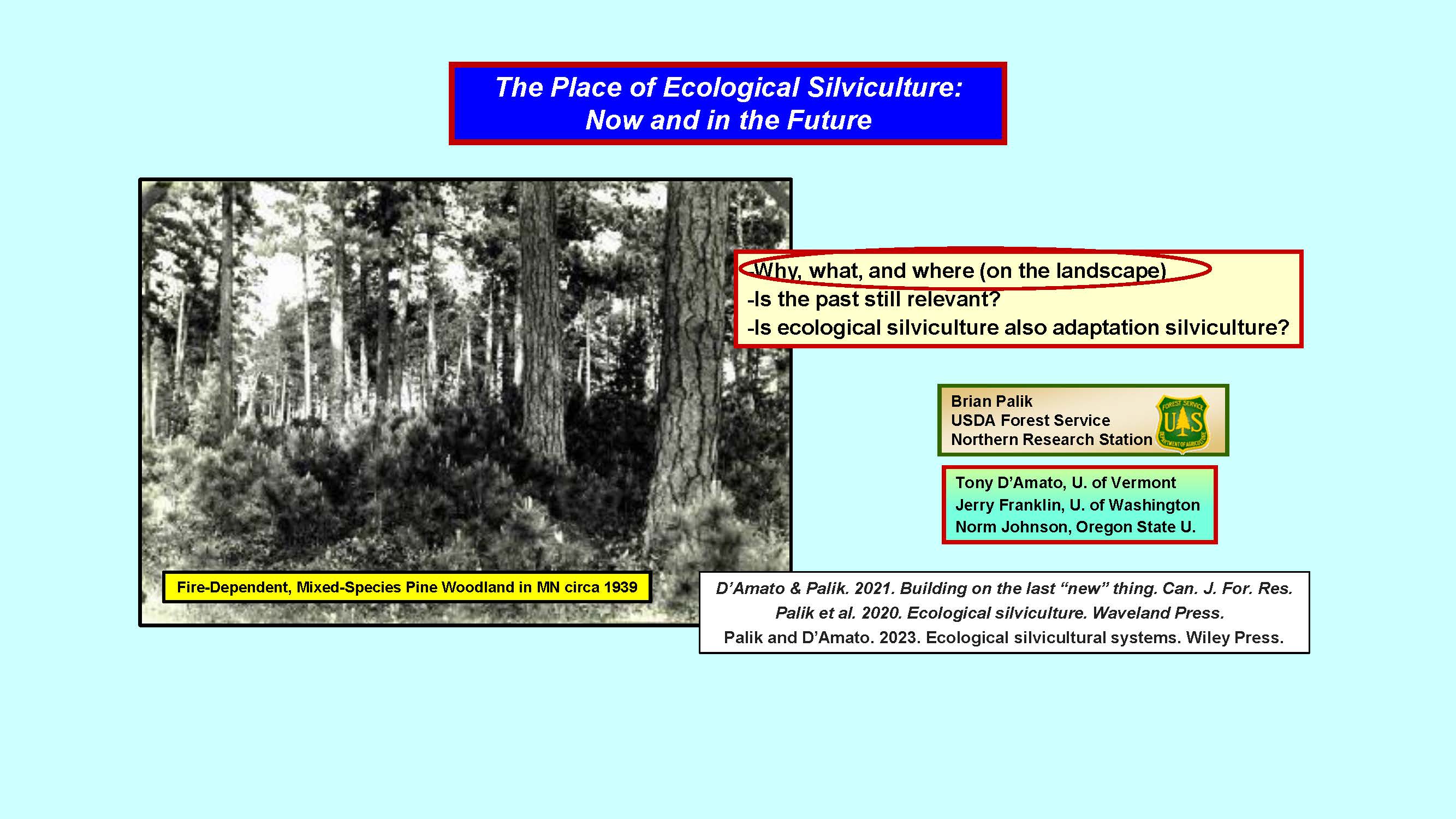
The Place of Ecological Silviculture, Now and in the Future
Presented on August 20, 2024.
Brian Palik with the USDA Forest Service discusses the place of ecological silviculture on the landscape, how to prevent the forest management divergence, and asks the question, when is the past the future and when is it not?

